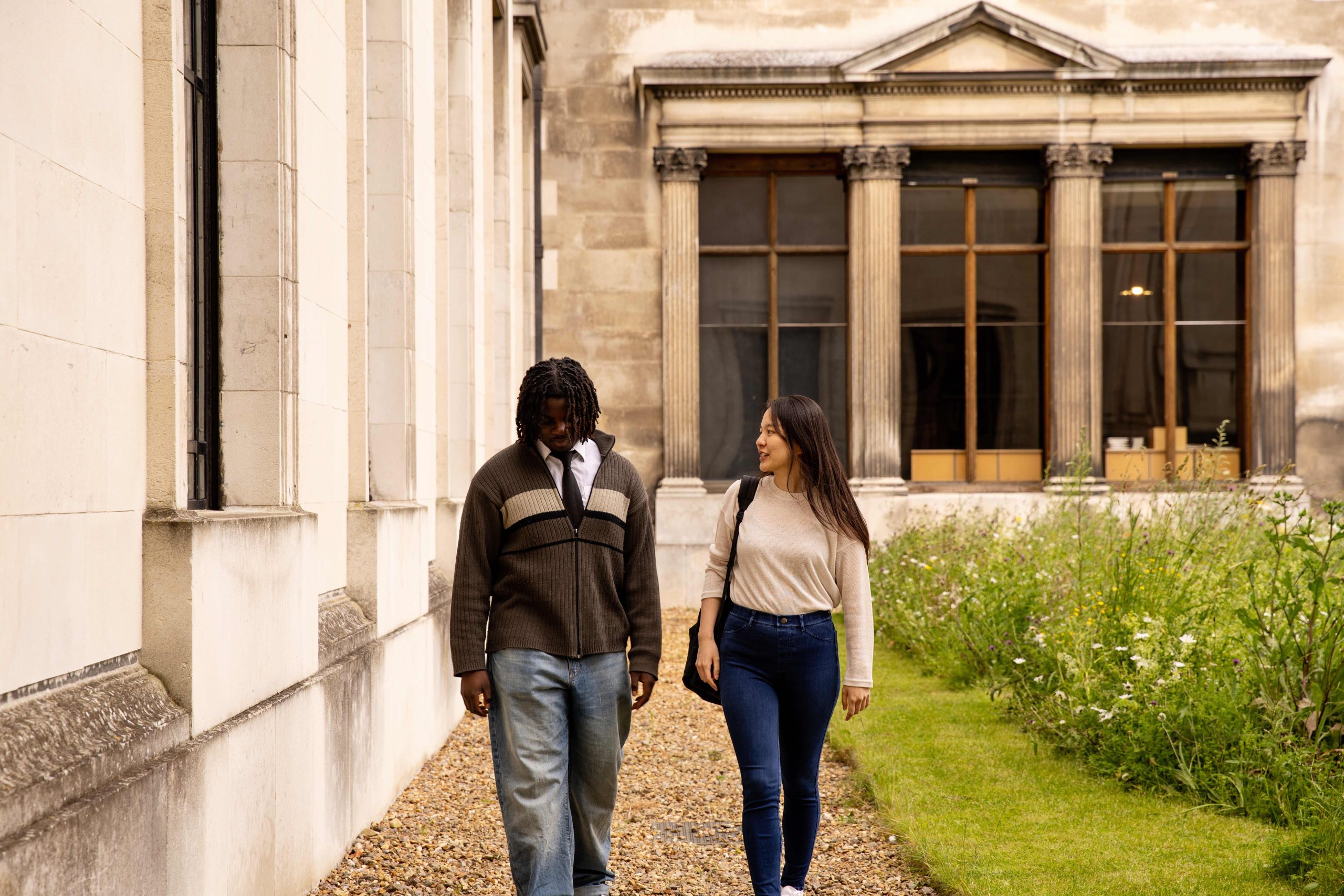Studying Asian and Middle Eastern Studies at Cambridge
- UCAS Code: TT46
- How many are admitted to Cambridge every year: 40
- Minimum offer: A*AA
- Essential subjects: A Level/IB Higher Level in your chosen European Language (if combining AMES with a modern European Language)
- Useful subjects: English (Language or Literature), History, Languages (ancient or modern)
Asian and Middle Eastern Studies (AMES) is a course which is unique to the University of Cambridge. It gives you the opportunity to explore contemporary global cultures through the in-depth study of language, culture and history.
You will have the chance to explore a range of different languages and cultures including, Arabic, Chinese, Hebrew, Hindi, Japanese, Korean, Persian, and Sanskrit.
You will spend your third year abroad perfecting your language skills.
The course is flexible, and numerous options and combinations are available. You should indicate which language(s) you’re interested in studying in your My Cambridge Application Form – the choice isn’t absolute, and some students change direction before they start or as they progress.
What can I do with a degree in Asian and Middle Eastern Studies?
Upon successful completion of the course, University of Cambridge graduates go on to a vast range of careers. Many using the subject directly in their careers in fields such as media, business, tourism, teaching, academia and the Civil Service. Others go onto to work in less related fields such as banking, marketing and law.
A recent survey of AMES Cambridge graduates showed that the top sectors graduates joined were arts and recreation, followed by consulting and then IT and the charitable sector. Of course, many AMES graduates continue to further postgraduate study and this may be something that you want to consider.
For more information, please visit the University Careers Service website at: Using your degree: Asian and Middle Eastern Studies

Studying AMES at St Edmund’s College
Studying AMES at St Edmund’s, as with other Colleges, will involve working closely with your Director of Studies, who will arrange (and sometimes also teach) your weekly one-on-one supervisions. Lectures and language classes are provided centrally by the AMES Department.
In the close-knit and international community at St Edmund’s, there is much to share and learn from each other. It is likely that you will end up continuing conversations based on your lectures in the college’s dining hall or the CR (Common Room).
Away from these scintillating conversations in the common areas, the college also offers several spaces where you can study and work on your essays such as the Paul Luzio Library building, the Norfolk library, study desks in the Mount Pleasant Halls Common room, the comfortable couches of the CR, and in Edspresso our café that serves excellent coffee and cakes or the benches in our lovely apple orchards!
We also have six study rooms (2 in the Luzio building, 2 in Norfolk building, and 1 in Mount Pleasant Halls), where college supervisions typically take place, and which can also be booked by students for their private study time or group projects.
Our college also has an extremely supportive Welfare and Wellbeing Department, which is happy to lend an ear and provide support should a student feel anxious or overwhelmed with the academic year.
How to Apply
Applications for all courses are made through UCAS. You must apply by 15 October 2025 to be considered for entry in October 2026.
Requirements
Written Work
Tests
Interviews
Deferred entry
Affiliated students
What is a typical Term’s work?
A typical term in the first year of an AMES degree involves primarily language study, as you will need to start mastering your chosen language/s in order to engage in related content papers in greater depth later in your degree, as well as on your Year Abroad.
Language supervisions typically occur weekly in small groups. Your supervisor will report to your DoS on a termly basis and your DoS will meet with you each term to discuss your academic progress. This means tailored support to ensure you thrive in your degree and reach your full potential. Since AMES students typically come in smaller cohorts and from across the collegiate university, supervisions and lectures mostly take place at the faculty so you’ll have the opportunity to really connect with and feel a part of the wider AMES community.
The second year sees the introduction of more in-depth content papers in a variety of subjects subjects ranging from ancient and modern histories and literatures to cinema and social anthropology.
Your third year will be spent abroad immersing yourself in the language and culture of your chosen country and is typically students’ favourite year! Finally, in your fourth year, you will return to Cambridge to complete your dissertation on a topic of your choice.
People
- Dr Saussan Khalil, Director of Studies in Asian and Middle Eastern Studies
- Dr Meav Rosenfeld-Hadad, College Bye-Fellow, Historian Musicologist at the Faculty of Asian and Middle Eastern Studies
- Dr Sami Everett, College Fellow, Research Fellow at the Faculty of Asian and Middle Eastern Studies


